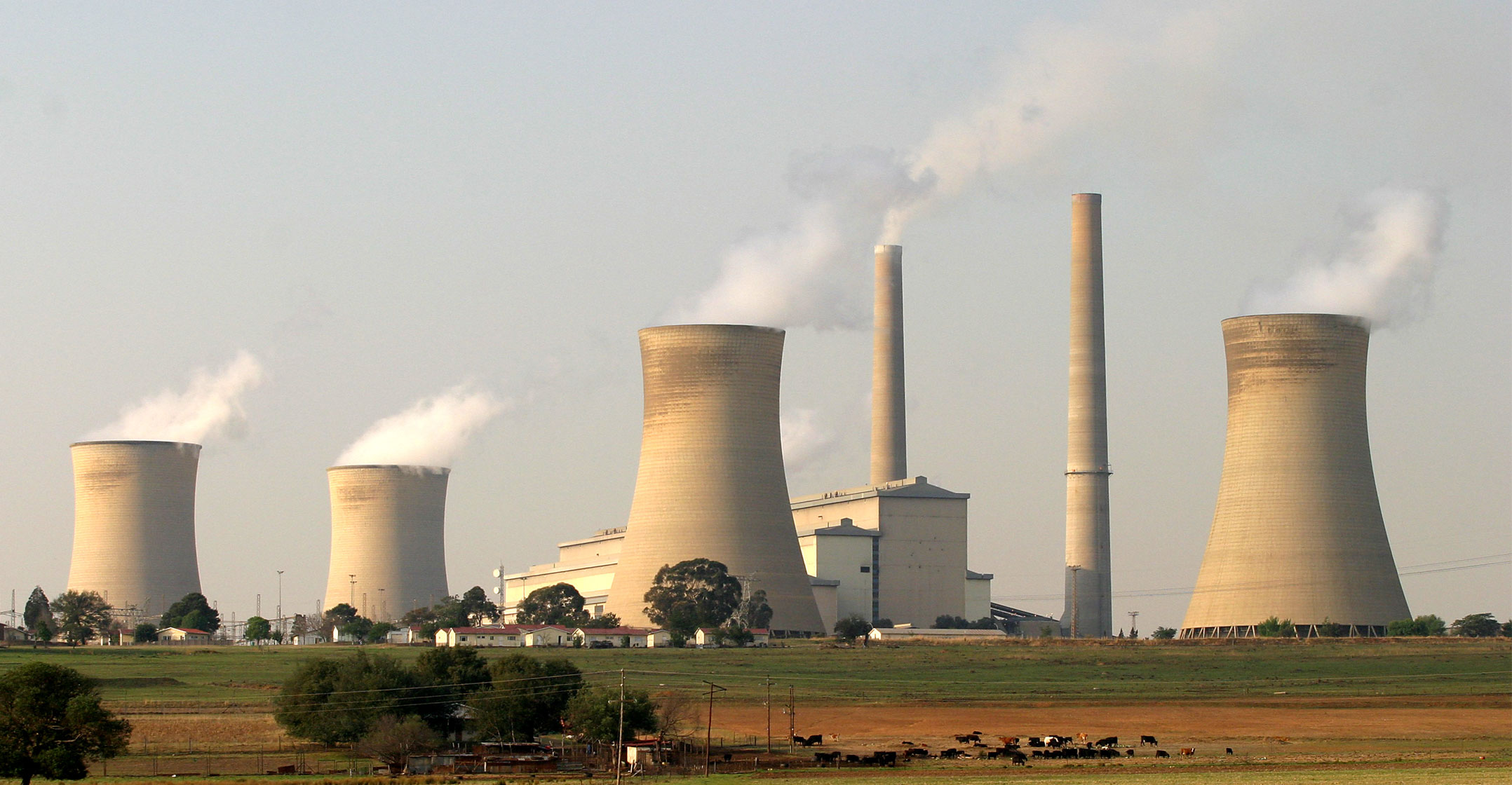 Eskom management is increasingly blaming staff in public for load shedding, but fails to provide the basics for them to keep the lights on, according to trade union Solidarity.
Eskom management is increasingly blaming staff in public for load shedding, but fails to provide the basics for them to keep the lights on, according to trade union Solidarity.
“There are no spares, because there is no money. Staff are trying to improvise and get permission for makeshift plans, but when the pawpaw hits the fan, management turns on them and blame them,” says Tommy Wedderspoon, coordinator for the electrical sector at Solidarity.
He says the morale among Eskom staff is at rock bottom as unions head to the Commission for Conciliation, Mediation and Arbitration (CCMA), where a dispute about Eskom’s “unilateral implementation of salary increases and reduction in benefits” will be heard in December.
Eskom announced at 12.20pm on Monday that the prevailing stage-2 load shedding would be intensified to stage 4 from 1pm, reducing the demand for electricity by 4GW. This is expected to continue until 5am on Friday (12 November ) when it will revert to stage 2 for another 24 hours.
Stage-4 load shedding leaves households and businesses without electricity for two-and-a-half hours at a time up to three times day, which results in traffic jams as traffic lights stop working, causes disruptions in the workplace, and leaves students preparing for matric and other exams in the dark.
South Africa has been suffering rolling blackouts on and off since 23 October, with a break on 1 November when the country went to the polls for municipal elections. This is the second time since then that it has escalated to stage 4.
Deliberate step
During a hastily convened press briefing before the elections, Eskom CEO André de Ruyter said the load shedding at that stage was a deliberate step to build up emergency reserves ahead of the polls, so that the elections would not be disrupted by load shedding.
Public enterprises minister Pravin Gordhan at the same event cited an incident he was briefed on where an Eskom employee ignored a warning light at one of the units at Kusile power station. This led to the unit tripping, and a loss of more than 600MW to the system. The employee was fired the next morning, Gordhan said.
De Ruyter, who has previously called for a culture change at Eskom, referred to criminal activities at a number of power stations. He also announced a system of financial incentives and penalties for power station managers, based on the performance of their plant.
Eskom was still the scene of crimes perpetuated by some of the very people tasked with the stewardship of this public institution
News24 reported that Eskom chief operating officer Jan Oberholzer during a briefing on 29 October said Eskom had “lost units because of pure negligence”.
On Friday (5 November), Eskom announced the arrest of staff members and a supplier at its Tutuka power station related to the disappearance of spares valued at hundreds of millions of rand and the exposure of a syndicate that allegedly stole R100-million worth of fuel oil per month at the same station.
De Ruyter said then that Eskom, and in particular Tutuka, was still “the scene of crimes perpetuated by some of the very people tasked with the stewardship of this public institution and by unscrupulous suppliers”.
 Wedderspoon says it is unfair to blame staff for Eskom’s problems. Power station managers who stand to lose part of their pay when their plant performs poorly are in an impossible position. There is no money for them to order spares to keep their plant running.
Wedderspoon says it is unfair to blame staff for Eskom’s problems. Power station managers who stand to lose part of their pay when their plant performs poorly are in an impossible position. There is no money for them to order spares to keep their plant running.
This corresponds with statements made by Eskom head of generation Phillip Dukashe that the current cash crunch Eskom finds itself in has resulted in a lack of money being available to buy spares when they are needed.
Dukashe said Eskom also regularly has to choose between making resources available for diesel for emergency generation or maintenance of other plant.
Wedderspoon says under these conditions, staff try to make plans and when another plant is standing idle, they may, for example, cannibalise it for spares. This is done “with approval” – but if things go wrong, they are blamed and told the approval was unauthorised.
The same staff who are being thrown under the bus are not getting any production bonuses and their benefits have been reduced unilaterally by management. Overtime payment has been reduced and they are no longer being paid for travel time to and from jobs.
This, according to Wedderspoon, means that an Eskom official may, for example, drive to a site two hours away in an Eskom vehicle to do a 30-minute job. The person will be busy with Eskom business for four-and-a-half hours, but gets paid only for the 30 minutes they spend on site.
Wedderspoon says that in October, Eskom recovered in one go what it considered to be overpayments for travel time paid to employees over the period of a year. This resulted in deductions of between R3 000 and R20 000 from the salaries of individual employees.
He says all three unions in the bargaining unit – the National Union of Mineworkers (NUM), the National Union of Metalworkers of SA (Numsa) and Solidarity – will see Eskom at the CCMA in December to resolve a dispute over this and Eskom’s unilateral implementation of a 1.5% salary increase in July before a deadlock was reached. Solidarity had been asking for a 7% increase for its members.
By midday on Monday (8 November), Eskom had enough diesel left to run its emergency generators for 20 hours, according to spokesman Sikonathi Mantshantsha. It is expecting more diesel to arrive at its Ankerlig Gas Turbine Power Station near Cape Town on Friday and Gourikwa Gas Turbine Power Station near Mossel Bay a week later. A need to preserve diesel was one of the other reasons given for the current round of load shedding.
- This article was originally published by Moneyweb and is republished by TechCentral with permission




